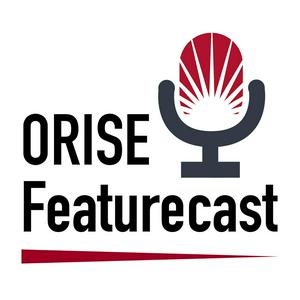National Science Bowl® is a fast-paced academic competition that offers teams of high school and middle school students from across the country a chance to match their wits in math and science in a series of head-to-head competitions. Regional competitions are held across the country, and 115 teams will advance from regionals to the National Science Bowl® in Washington, D.C., this April, all expenses paid! ORISE and Albert Einstein Distinguished Educator Fellows have played a role in providing logistical support for years. In this episode of the ORISE Featurecast, hosts Michael Holtz and Natasja Brown discuss Science Bowl with educator Mary Lou O’Donnell and Sirius Drahos, who was one of Brown’s students when she coached her school’s Science Bowl team.
To learn more about National Science Bowl®, visit https://science.osti.gov/wdts/nsb
Volunteers are a crucial component to a successful Science Bowl. If you are interested in volunteering, visit
https://science.osti.gov/wdts/nsb/Volunteers
Marylou O’Donnell currently works for ORISE assisting Jan Tyler in all things related to the National Science Bowl. This role evolved from her 2019 to 2020 AEF fellowship in which she served as the DOE fellow. Living in Long Island NY, she served 24 years as a chemistry, biology and research teacher in Plainview-Old Bethpage school district. She was the coordinator of their award-winning Independent Research Program. Her students placed nationally at the INTEL STS (Regeneron STS), the International Science and Engineering Fair, the DuPont Challenge, Toshiba Exploravision and eCybermission. Prior to this she worked for a decade in the NYC public school system as a computer science, biology, chemistry, and research teacher.
Sirius Drahos is a freshman at Ocean Springs High School with a strong passion for math and science. His love for these subjects led him to join his school's Science Bowl team. He has always enjoyed experimenting with chemistry and computer science kits and even received monthly engineering kits for a year. After high school, Sirius plans to attend Mississippi State University to major in software development. His ultimate goal is to work at Mojang Studios, and if hired, he’s ready to make the big move to Sweden. Beyond academics, Sirius has been involved in soccer since he was four years old. In 2024, he transitioned from player to referee, taking on a new role in his local recreational league. In his free time, he enjoys computer gaming, basketball, writing music, and spending time with friends and family. His favorite science subjects are chemistry and Earth science because he loves seeing real-world applications and hands-on demonstrations.
The Albert Einstein Distinguished Educator Fellowship Act gives the U.S. Department of Energy (DOE) the responsibility for managing the Albert Einstein Distinguished Educator Fellowship. The DOE Office of Science’s Office of Workforce Development for Teachers and Scientists (WDTS) manages this program for DOE in collaboration with the Oak Ridge Institute for Science and Education (ORISE) and the partnering Federal agencies, which, at the time of this recording, included the Department of Defense (DOD), the Department of Energy (DOE), the Library of Congress (LOC), the National Aeronautics and Space Administration (NASA), the US Geological Survey (USGS), the Department of Homeland Security (DHS), and the National Science Foundation (NSF). The DOE sponsors five placements in congressional offices.
To learn more about the Albert Einstein Distinguished Educator Fellowship, visit https://science.osti.gov/wdts/einstein.


